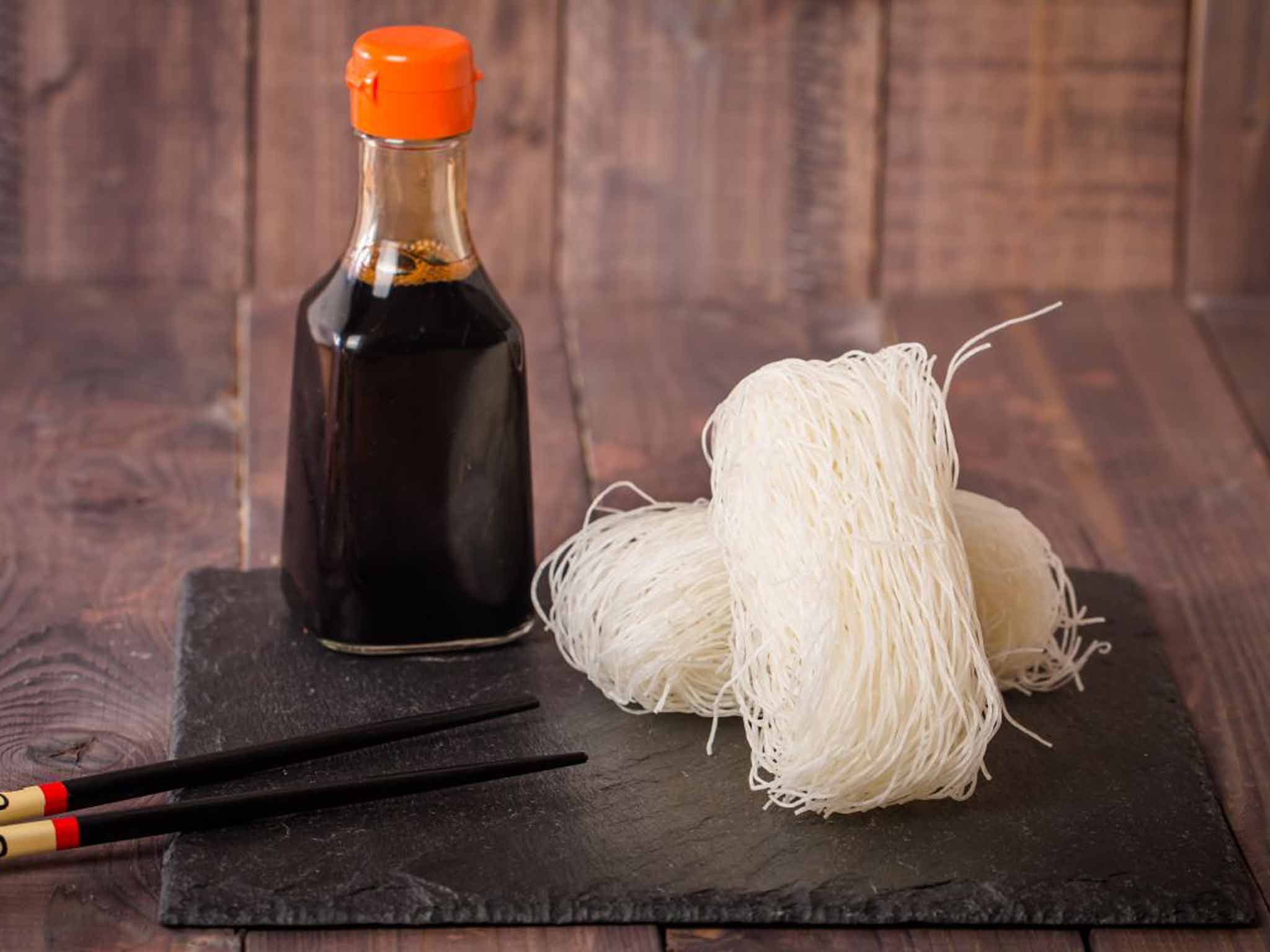Soy sauce: Why we have to thank the Chinese taxman for this source of pleasure
To be both useful and delectable is a rare combination, but soy sauce manages it

Your support helps us to tell the story
From reproductive rights to climate change to Big Tech, The Independent is on the ground when the story is developing. Whether it's investigating the financials of Elon Musk's pro-Trump PAC or producing our latest documentary, 'The A Word', which shines a light on the American women fighting for reproductive rights, we know how important it is to parse out the facts from the messaging.
At such a critical moment in US history, we need reporters on the ground. Your donation allows us to keep sending journalists to speak to both sides of the story.
The Independent is trusted by Americans across the entire political spectrum. And unlike many other quality news outlets, we choose not to lock Americans out of our reporting and analysis with paywalls. We believe quality journalism should be available to everyone, paid for by those who can afford it.
Your support makes all the difference.You know that bit on Desert Island Discs where Kirsty Young asks her castaway what luxury item they would take on to the island? Well, the interviewees always get that bit wrong. Bill Gates's “bunch of DVDs of great lectures”? No, no, no. Princess Margaret's grand piano? Not so sure. What they should be ordering from Young's department store of dreams is a gargantuan bottle of soy sauce.
Soy is the thing I cannot do without – an eternal beacon, guiding troubled dishes into softer waters. It has saved me from a rumbling stomach more times than I care to recall. From a cheap, last-minute honey-and-soy salad dressing to the sybaritic glory of melted butter mixed with soy and drizzled on rice, soy shines so bright that it would have a dedicated shrine on my island.
Unusually, though, we have the tax-collecting rigour of a government treasury to thank for this source of pleasure. The imperial Chinese government long held a monopoly over salt sales; supply was kept short and demand high, so prices were stratospheric and those short of a bob were short of salt. To eke out what there was, salt was often made into a fermented sauce using fish or meat and soy beans. This haphazard process eventually yielded a meat-based condiment called jiang which, in turn – once the meat or fish was dropped from the recipe at some point between the 3rd and 5th centuries – produced something approaching the soy sauce we recognise today.
The first signs of it making its way to Europe are in the records of the Dutch East India Company, which notes that 75 large barrels went from Japan to Jakarta in 1737, with 35 of them then going on to the Netherlands.
Samuel Wells Williams, the great Sinologist, wrote in 1848 that the best soy he tasted in China was “made by boiling beans soft, adding an equal quantity of wheat or barley, and leaving the mass to ferment; a portion of salt and three times as much water are afterwards put in, and the whole compound left for two or three months”. These days, the soy beans are soaked and boiled, mixed with the fungus Aspergillius oryzae, and left in brine until the starches in the soy are released, yielding a black liquid.
The next stage is the pressing. As with olive oil, the first press is considered to give the best, and least overbearing, flavour. The light soy produced is thinner and used for dipping and finishing. It's the stuff you get with sushi. Traditionally there was a thicker second press, which is sometimes still seen, though hydraulic presses have largely obviated it these days, scraping everything that's left after the first press into a common pot of darker saltiness.
To be both useful and delectable is a rare combination – but soy sauce manages it. It is seasoning, sure, but it is not just salt to be dispensed willy nilly, it also has a rich umami hit, that platinum-coated characteristic of the best Asian foods. And with a bottle knocking about in the back of the fridge, your dinners – and your desert island – will never be boring.
Join our commenting forum
Join thought-provoking conversations, follow other Independent readers and see their replies
Comments